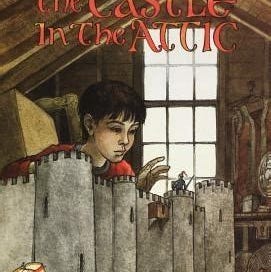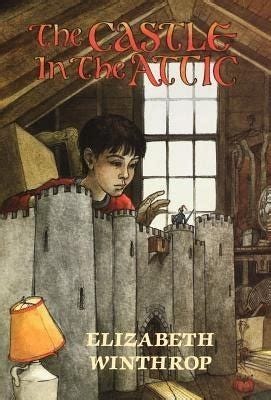Deep breath
In January, I will be reverting all US rights for The Castle in the Attic, my bestselling children’s fantasy novel.
Original hardcover jacket art by Trina Schart Hyman
This is a very big step as it means the book will only be available in audio with Penguin Random House, in Chinese and Romanian editions, in libraries, used bookstores and on pirated sites run by shady operators in far flung countries. (More on piracy in another newsletter.)
So why am I making this drastic move?
I’ll start at the beginning. When I first published The Castle in the Attic in 1985 (note that date) with Holiday House, it was a time when many publishers did not have paperback lines. So, Holiday House sold the paperback license to Random House where the book is currently in its 70th printing. These days, most publishers have developed a paperback line which means that the author receives an 8% royalty based on the list price as I have on my other books. But with Castle, I have had to split the paperback royalty with the hardcover publisher, so for 35 years, I’ve received only 4% of the list price.
The current US copyright law allows an author to terminate the US publishing rights in a window between 35 and 40 years after its initial contract date. If I did not terminate the rights, this deal would have continued for my life plus 70 years. In 2023, my lawyer sent out a notice to Holiday House and Penguin Random House informing them that I would be terminating the rights as of January 2025. From that date in 2023, they had two years to sell off stock. In the meantime, I’ve written a prequel called The Cradle in the Castle and I’m currently working on a final sequel to follow The Battle for the Castle which was published in 1993.
I admit I’ve become disgruntled with the small percentage creative makers receive for our work compared to what publishers, music labels, and art galleries among others, get for moving our work out into the world. Having self-published three of my out-of-print books, I’m aware of the heavy lift it takes to print, market, ship and sell books, but I’ve decided to pull the rights and sit on the sidelines for the moment as I’m beginning to see cracks in the old ways of producing and marketing art in all forms.
A couple of examples include artists selling their work directly on the internet and through social media sites like Instagram or the new hybrid publishing models where the writer puts up money to produce the book and keeps 90% of the royalties.
And then there are the musicians.
Here’s a paragraph from the March 2021 issue of Time Magazine on Taylor Swift choosing to re-record her old albums.
But behind it all is an artist who’s been fighting for years now to manage the means, method of production, and distribution of her work. Art makes us feel things, a craft at which Swift is a master. Art also makes money, and Swift is equally adept at that. Her goal now: make sure it stays within her control. It’s a pipe dream for artists of any kind. But Swift has power that most don’t, and her very personal fight to reshape the way wealth is distributed from creative work is a potential model for wrestling compensation back from industry forces.
Trust me, I know that I’m no Taylor Swift, but her desire to make sure the money stays within her control strikes a chord with me. I wasn’t willing to let this window of opportunity close as since 1985, I’ve left about $260,000 on the table. There’s no one to blame. That was the state of publishing when I started and once you sign a contract, you are bound by its terms. I’m thrilled with the millions of book buyers, teachers, librarians, reviewers and readers who have taken my book and its characters to heart. The Castle in the Attic has been turned into a play, reissued in a 35th Anniversary edition, taught in hundreds of schools, optioned for the movies and the book has sold millions of copies in hardcover, paperback, audiobook and eBook editions. With the prequel and the sequels, it is considered in modern parlance, a “franchise,” and one I hope is destined to find a new life and new readers.
For the next month, you can order physical copies of The Castle in the Attic at at your local independent bookstore or at any of the links above.





Thanks for writing this. I understand this so much better. 4% or even 8% is absurd for the person whose work is making all of the money. Frustrating.
Really interesting, I'll have to read it again to take it in. Brexit has put British musicians in a terrible position but don't ask me to exlpain it.